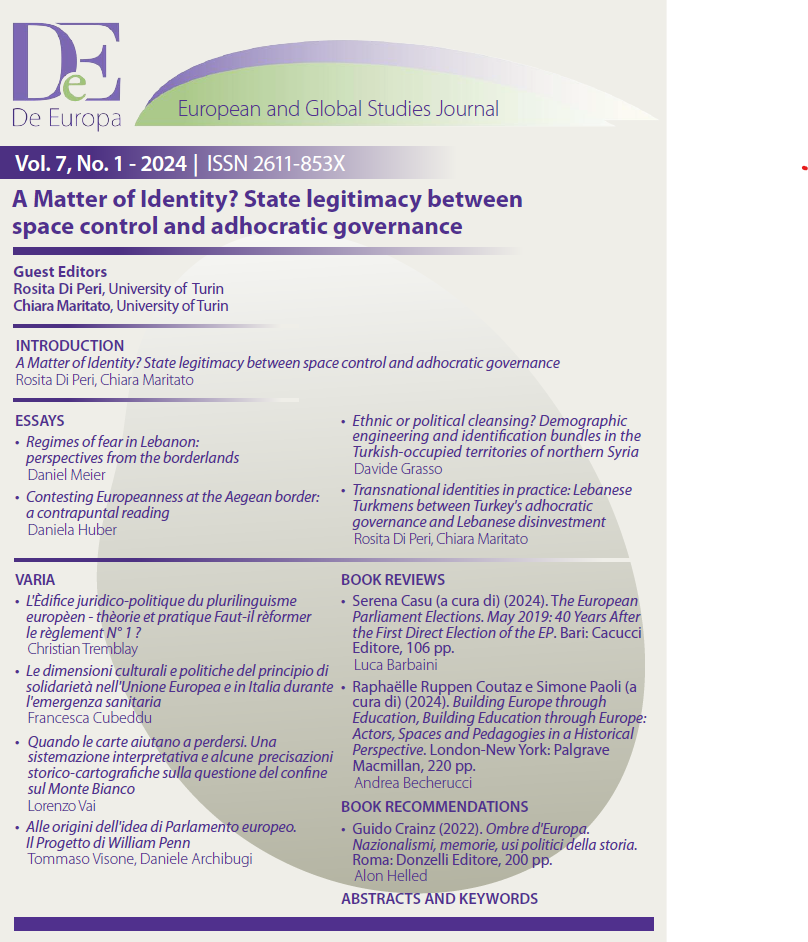Transnational identities in practice: Lebanese Turkmens between Turkey’s adhocratic governance and Lebanese disinvestment
DOI:
https://doi.org/10.13135/2611-853X/10573Abstract
The article explores the transnational dimension of adhocratic governance through the case study of the Turkmen community in Lebanon, a marginal and seemingly insignificant group, especially from a demographic point of view. It investigates how Turkey’s and Lebanon’s governance of Turkmen communities has evolved over the past few decades and what this reveals about how the Turkmen’s transnational identities operate in practice. Drawing on extensive fieldwork conducted by the authors in both Lebanon and Turkey, the paper contends that in recent years, Turkey has implemented ad hoc strategies towards Turkmen communities, influencing their transnational identification practices. While Lebanon has disengaged from the management of a population living in marginal yet strategically relevant areas, Turkey has framed its foreign policy in terms of cultural-religious kinship and pragmatism. Both political processes are continually characterised by competing bundles of identifications, which temporarily and incompletely acquire a privileged status in (especially foreign policy) decision-making.
Keywords: Lebanon, Turkey, Transnational Identities, Adhocracy, Transnational Governance, Kinship




 The journal has been approved for inclusion in DOAJ. The DOAJ listing of the journal is available at
The journal has been approved for inclusion in DOAJ. The DOAJ listing of the journal is available at 

